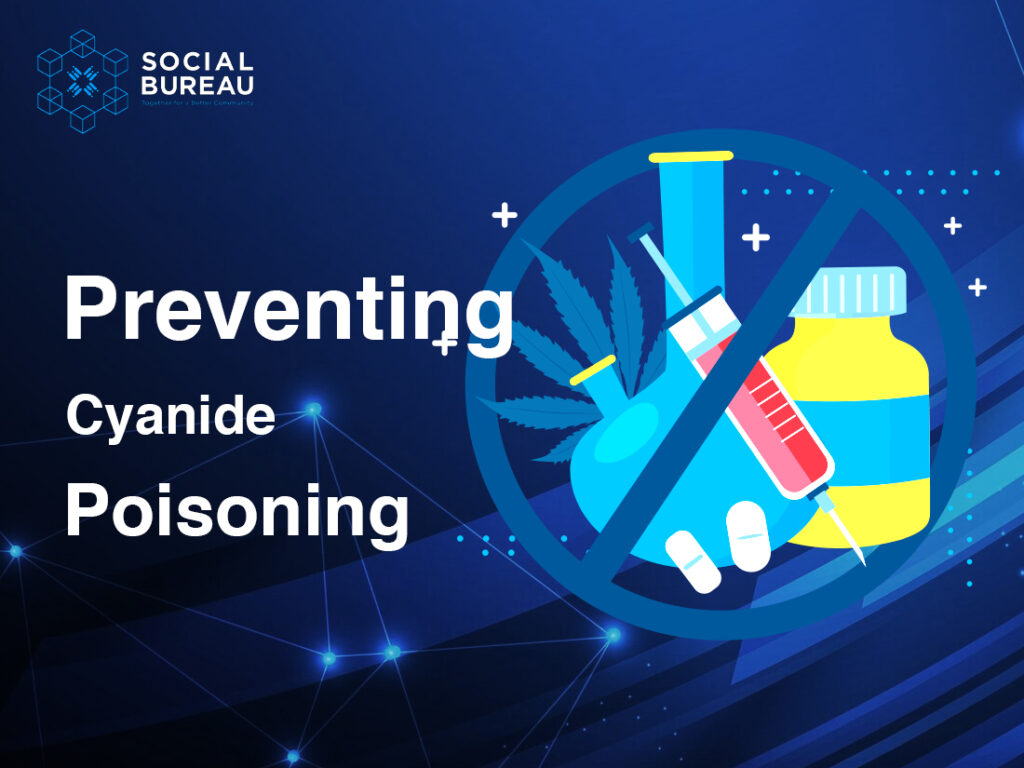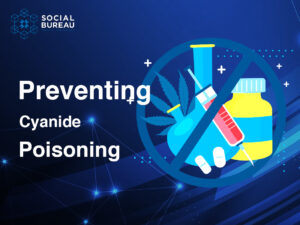Cyanide is a highly toxic substance that can cause serious harm or death in small quantities. To help protect yourself and your loved ones, the Social Bureau has compiled essential safety tips and guidelines to prevent cyanide poisoning.
Understanding Cyanide
Cyanide is a fast-acting poison that can be found in various forms, including gas, liquid, and powder. It can enter the body through inhalation, ingestion, or skin contact. Common sources of cyanide exposure include:
- Certain industrial processes and chemicals
- Some types of plants and seeds (e.g., apple seeds, bitter almonds)
- Contaminated food or water
- Smoke from fires involving plastic, wool, or other synthetic materials
Preventive Measures
1. Be Cautious with Food and Drink
- Avoid Unknown Sources: Only consume food and beverages from trusted sources. Be cautious of homemade or unfamiliar products.
- Check for Tampering: Inspect food packaging for signs of tampering. Do not consume items with broken seals or unusual odors.
- Proper Food Preparation: Avoid using seeds and pits from fruits like apples and cherries, which contain small amounts of cyanide.
2. Awareness and Education
- Learn to Recognize Symptoms: Early symptoms of cyanide poisoning include headache, dizziness, shortness of breath, and confusion. Severe cases may lead to seizures, cardiac arrest, and loss of consciousness.
- Stay Informed: Educate yourself and your family about the risks and sources of cyanide. Regularly update your knowledge on safety practices.
3. Secure and Safe Environments
- Proper Storage: Store chemicals and substances containing cyanide in clearly labeled, secure containers away from food and drink.
- Use Protective Gear: When handling potentially hazardous materials, use appropriate protective gear such as gloves and masks.
- Well-Ventilated Areas: Ensure good ventilation when using products that may release cyanide fumes.
4. Immediate Actions in Case of Suspected Poisoning
- Seek Medical Help: If you suspect cyanide poisoning, seek immediate medical attention. Time is critical in treating cyanide exposure.
- Call Emergency Services: Contact emergency services and provide clear information about the symptoms and suspected source of poisoning.
- Do Not Induce Vomiting: If cyanide is ingested, do not induce vomiting. This can cause further harm.
5. Community Vigilance
- Report Suspicious Activities: Report any suspicious activities or individuals who may pose a threat to public safety. Community vigilance can prevent potential poisoning incidents.
- Support Victims: Offer support to victims and families affected by poisoning incidents. Community solidarity is crucial in times of crisis.
Conclusion
Preventing cyanide poisoning requires awareness, caution, and swift action. By following these guidelines, you can significantly reduce the risk of exposure and protect yourself and your community from harm. Stay informed, stay vigilant, and prioritize safety to prevent such tragic incidents from occurring.
For more information and resources on preventing poisoning and other safety measures, visit the Social Bureau website or contact our helpline. Your safety is our priority.




